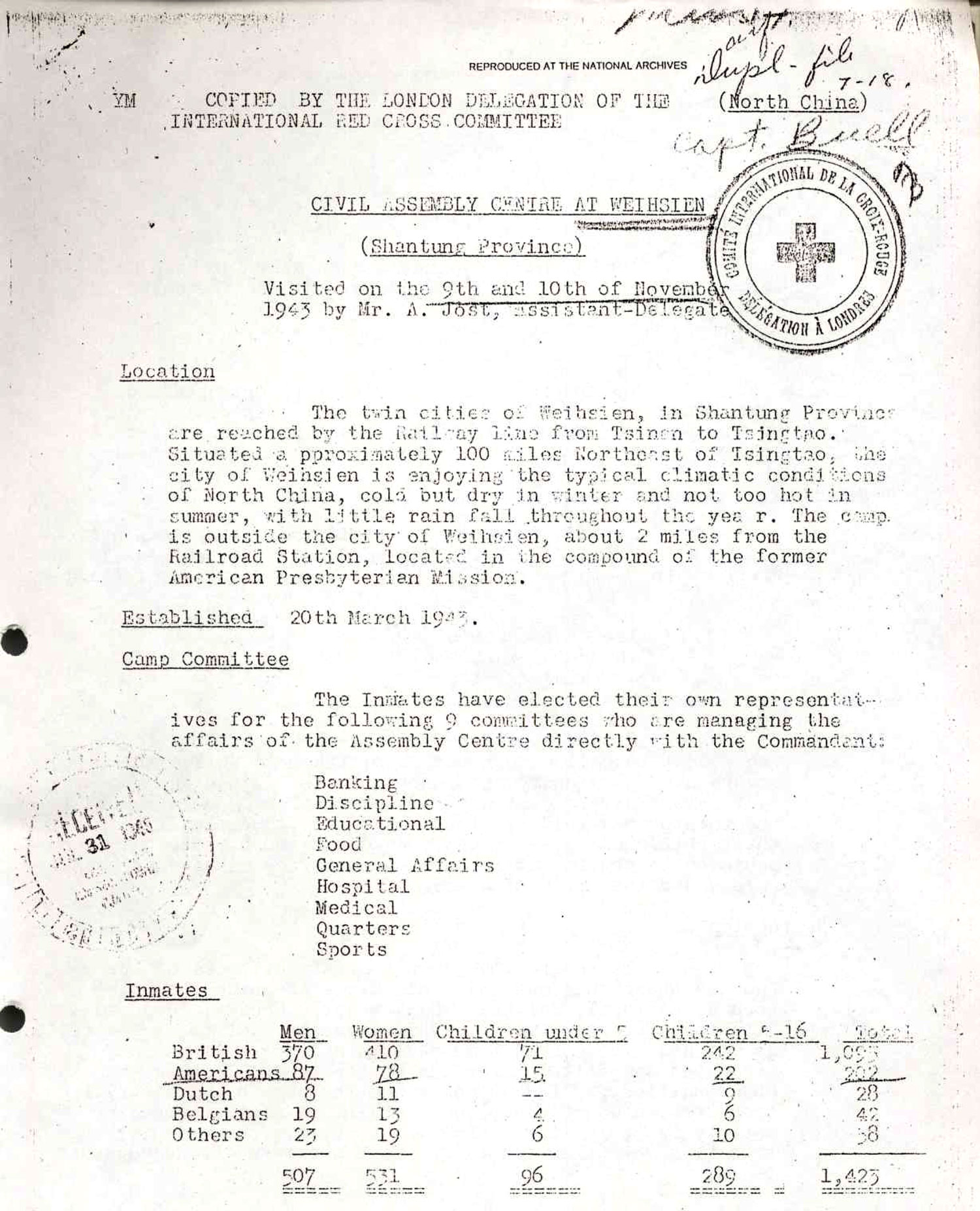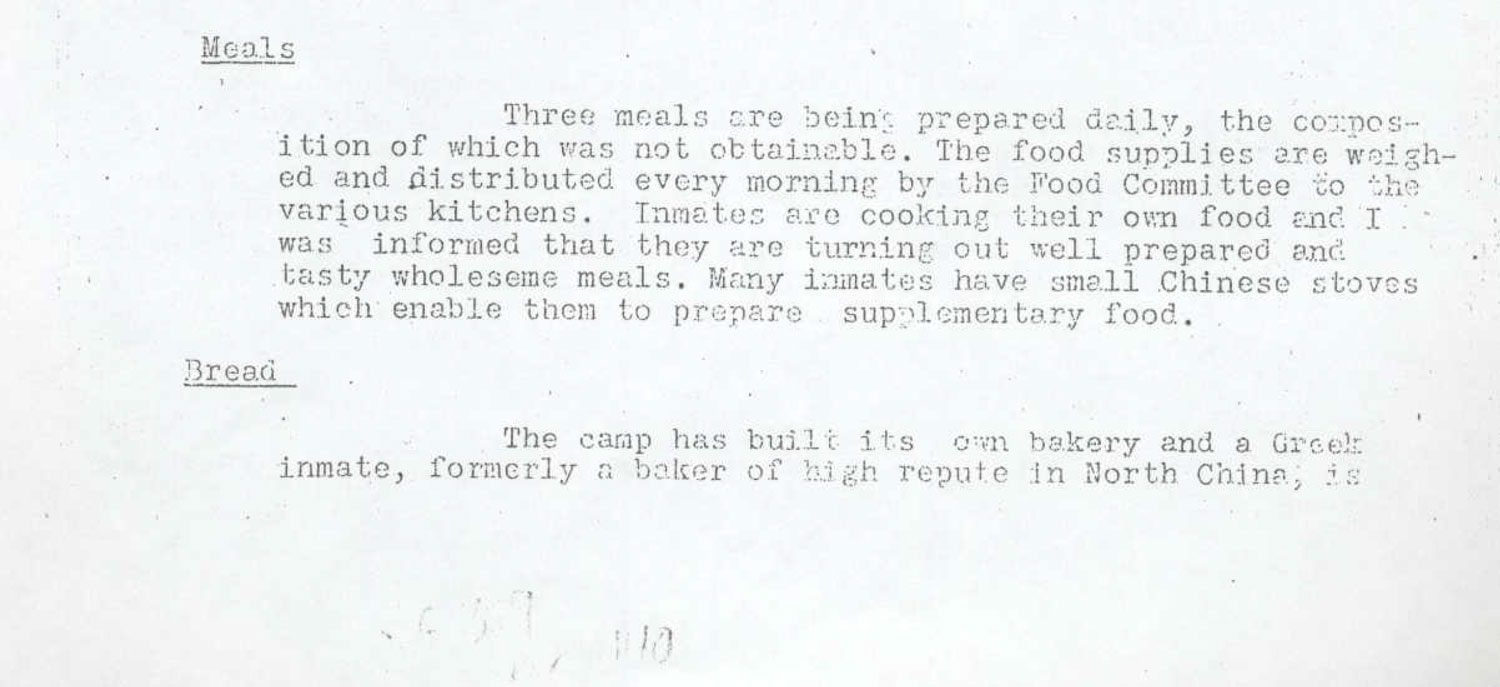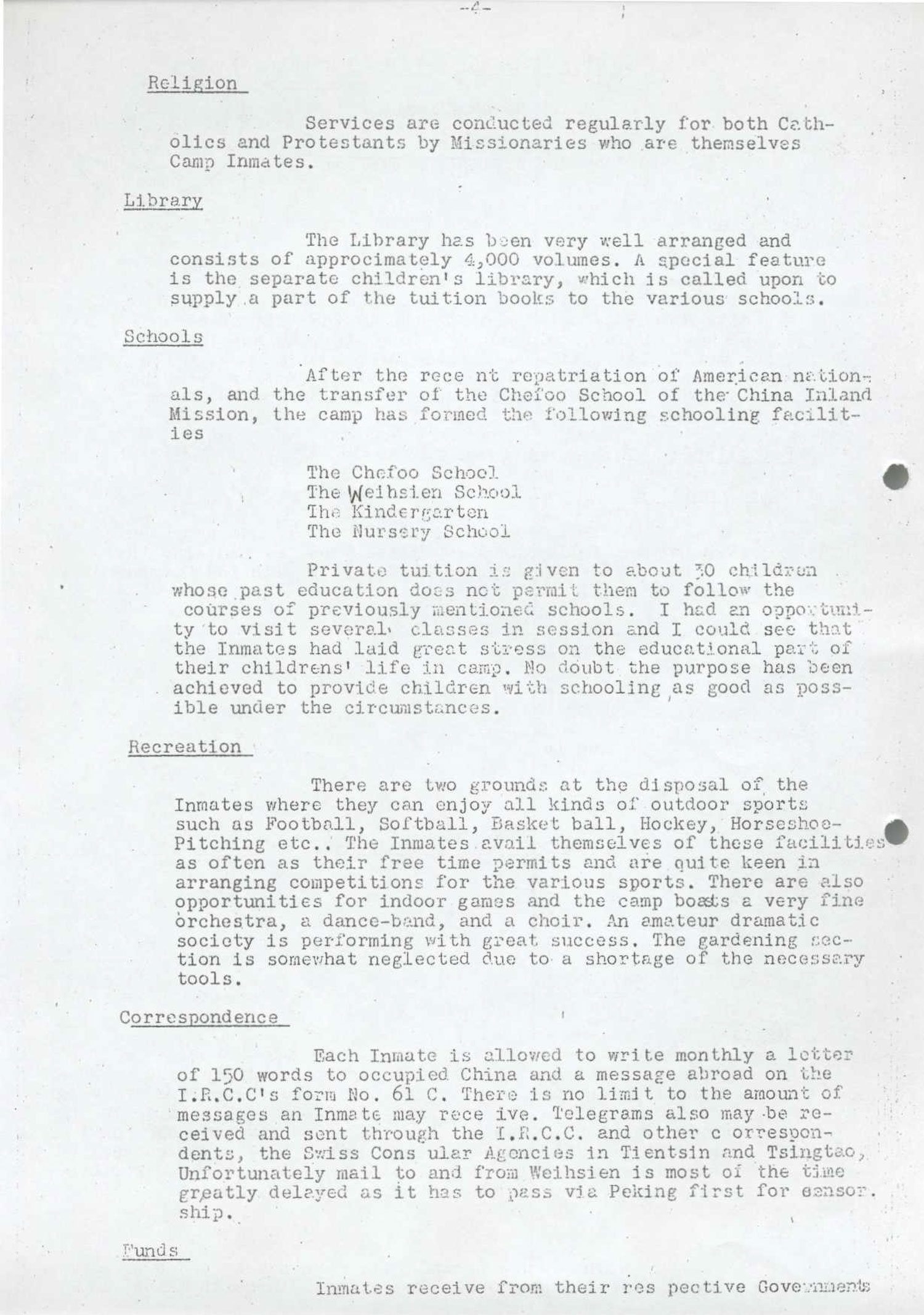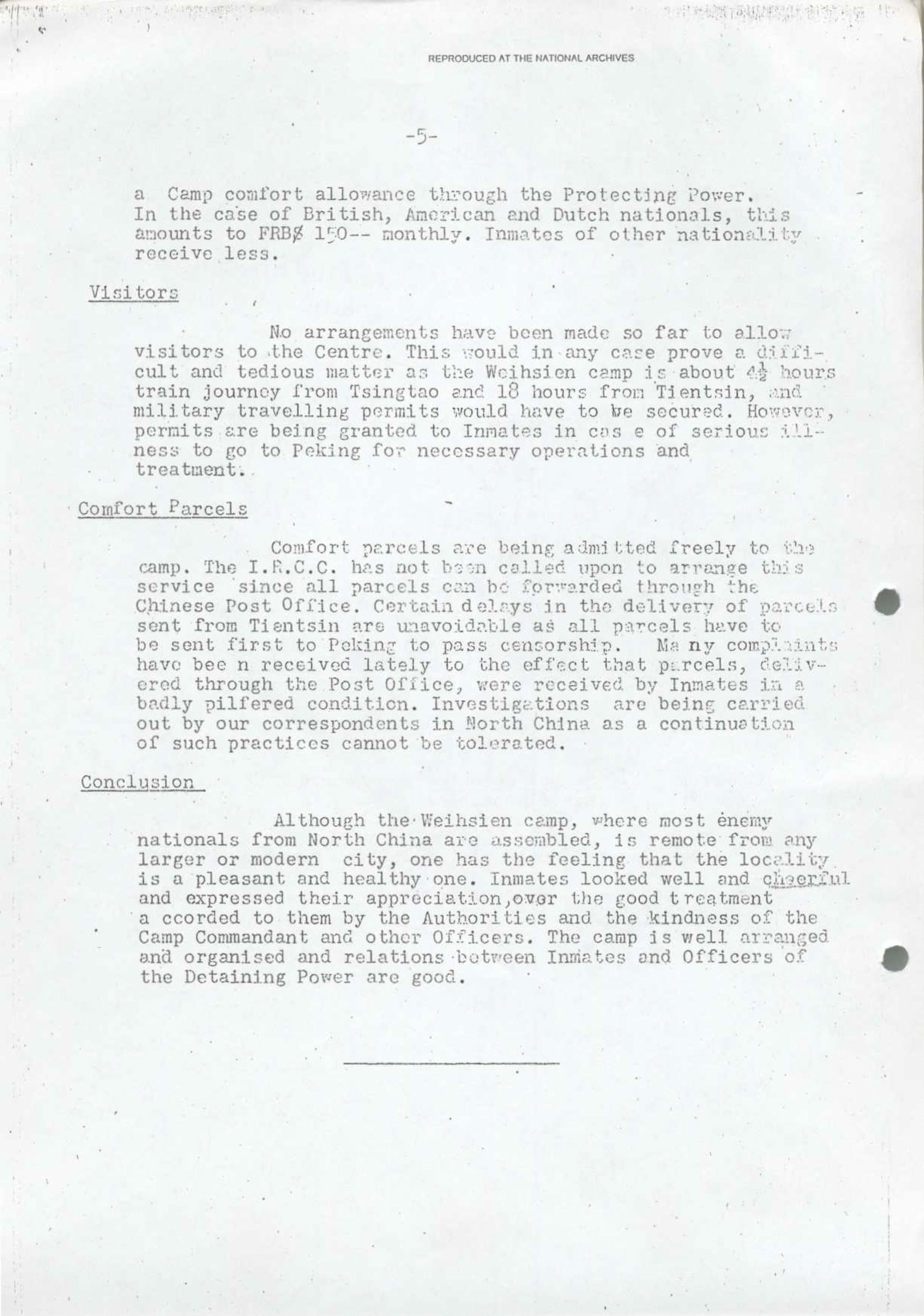
REPRODUCED AT THE NATIONAL ARCHIVES
Ym
COPIED BY THE LONDON DELEGATION OF THE INTERNATIONAL RED CROSS COMMITTEE
North China

CIVIL ASSEMBLY CENTRE AT WEIHSIEN
(Shantung Province)
Visited the 9th and 10th November 1943 by Mr A. Jost, Assistant-Delegate.
Location:
The twin cities of Weihsien, in Shantung Province are reached by the railway line from Tientsin to Tsingtao. The city of Weihsien is enjoying the typical climatic conditions of North China, cold but dry in the winter and not too hot in the summer, with little rainfall throughout the year. The camp is outside the city of Weihsien, about two miles from the Railroad Station, located in the compound of the former Presbyterian Mission.
Established:
20th March 1943.
Camp Committee:
The inmates have elected their own representatives for the following 9 committees who are managing the affairs of the Assembly Centre directly with the Commandant:
Banking
Discipline
Educational
Food
General Affairs
Hospital
Medical
Quarters
Sports
Inmates:


Meals:
Three meals are being prepared daily, the composition of which was not obtainable. The food supplies are weighed and distributed every morning by the Food Committee to the various kitchens. Inmates are cooking their own food and I was informed that they are turning out well prepared and tasty wholesome meals. Many inmates have small Chinese stoves which enable them to prepare supplementary food.
Bread:
The camp has built its own bakery and a Greek inmate, formerly a baker of high repute in North China, is ―― ??
(page(s) missing !?)
***

Religion:
Services are conducted regularly for both Catholics and Protestants by Missionaries who are themselves Camp Inmates.
Library:
The library has been very well arranged and consists of approximately 4000 volumes. A special feature is the separate children’s library, which is called upon to supply a part of the tuition books to the varied schools.
Schools:
After the recent repatriation of American Nationals, and the transfer of the Chefoo School of the China Inland Mission, the camp has formed the following schooling facilities:
The Chefoo School
The Weihsien School
The Kindergarten
The Nursery School
Private tuition is given to about 30 children whose past education does not permit them to follow the courses of previously mentioned schools. I had an opportunity to visit several classes in session and I could see that the Inmates had laid great stress on the educational part of their children’s’ life in camp. No doubt the purpose has been achieved to provide children with schooling as good as possible under the circumstances.
Recreation:
There are two grounds at the disposal of the inmates where they can enjoy all kinds of outdoor sports such as Football, Softball, Basket ball, Hockey, Horseshoe-Pitching, etc. The inmates avail themselves of these facilities as often as their free time permits and are quite keen in arranging competitions for the various sports. There are also opportunities for indoor games and the camp boasts a very fine orchestra, a dance-band, and a choir. An amateur dramatic society is performing with great success. The gardening section is somewhat neglected due to a shortage of the necessary tools.
Correspondence:
Each Inmate is allowed to write monthly a letter of 150 words to occupied China and a message abroad on the I.R.C.C.’s form No.61C. There is no limit to the amount of messages an Inmate may receive. Telegrams also may be received and sent through the I.R.C.C. and other correspondents, the Swiss Consular Agencies in Tientsin and Tsingtao. Unfortunately mail to and from Weihsien is most of the time greatly delayed as it has to pass via Peking first for censorship.
Funds:
Inmates receive from their respective Governments ...

... a Camp comfort allowance through the protecting power. In the case of British, American and Dutch nationals, this amounts to FRB$150― monthly. Inmates of other nationality receive less.
Visitors:
No arrangements have been made so far to allow visitors to the Centre. This would in any case prove difficult and tedious matter as the Weihsien Camp is about 4½ hours train journey from Tsingtao and 18 hours from Tientsin, and military travelling permits would have to be secured. However, permits are being granted to Inmates in case of a serious illness to go to Peking for necessary operations and treatment.
Comfort Parcels:
Comfort parcels are being admitted freely to the camp. The I.R.C.C. has not been called upon to arrange this service since all parcels can be forwarded through the Chinese Post Office. Certain delays in the delivery of parcels sent from Tientsin are unavoidable as all parcels have to be sent first to Peking to pass censorship. Many complaints have been received lately to the effect that parcels delivered through the Post Office, were received by Inmates in a badly pilfered condition. Investigations are being carried out by our correspondents in North China as a continuation of such practices cannot be tolerated.
Conclusion:
Although the Weihsien camp, where most enemy nationals from North China are assembles, is remote from any larger or modern city, one has the feeling that the locality is a pleasant and healthy one. Inmates looked well and cheerful and expressed their appreciation, over the good treatment accorded to them by the Authorities and the kindness of the Camp Commandant and other Officers. The camp is well arranged and organized and relations between Inmates and Officers of the Detaining Power are good.
[End of page.]





